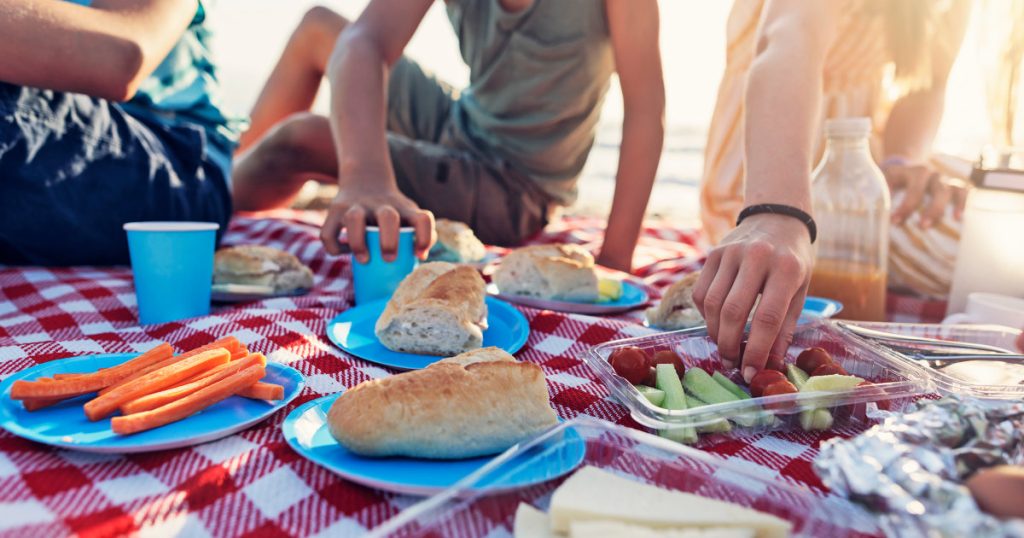When heading to the beach this summer, it’s important to keep food safety in mind to avoid the risk of getting sick from consuming spoiled or contaminated foods. Leaving food unrefrigerated for an extended period can cause bacteria like E. coli and salmonella to grow, leading to symptoms such as diarrhea and vomiting. The temperature danger zone for food is between 40 and 140 degrees Fahrenheit, where bacteria thrive. Dr. John Torres, NBC News senior medical correspondent, advises against bringing certain foods to the beach to ensure a safe and enjoyable trip.
Cold cuts that require refrigeration, such as deli meats like turkey, ham, and roast beef, should be avoided unless kept in a cooler until ready to eat. Fresh salads, fruits, and vegetables can also harbor dangerous bacteria if not properly stored and are best left at home. Mayo-based dishes, such as potato salad, should be refrigerated until serving to prevent bacterial growth. Raw meat, like hamburger or chicken, should be stored in a cooler below 40 degrees Fahrenheit until ready to cook to reduce the risk of contamination.
Precut fruits, especially melons like watermelon and cantaloupe, are prone to foodborne pathogens and should be avoided unless cut fresh at the beach. It’s essential to practice food safety when at the beach to prevent foodborne illnesses. Perishable foods should not sit out of refrigeration for more than two hours, or one hour if temperatures are 90 degrees or higher. When packing food, aim to keep it refrigerated until consumption and avoid leftovers by packing only what you plan to eat. Raw meat should be seasoned at home and kept separate from other foods in the cooler to avoid cross-contamination.
When packing beverages, keep them in a separate cooler from food to minimize exposure to warm temperatures. Filling the cooler all the way and adding extra ice can help keep its contents cool for longer. Bringing a food thermometer if cooking at the beach is a good idea to ensure food reaches a safe internal temperature. By following these food safety tips, you can enjoy a worry-free beach trip without the risk of getting sick from spoiled or contaminated foods.


